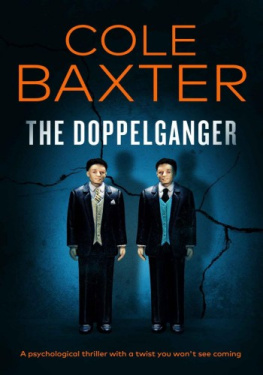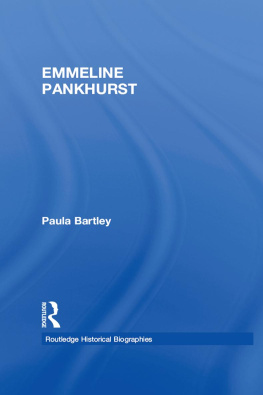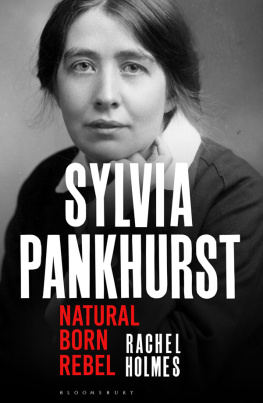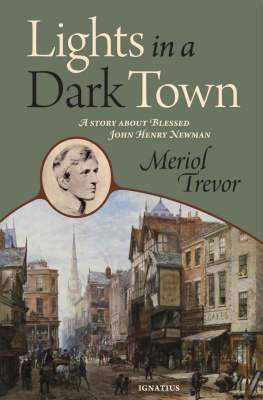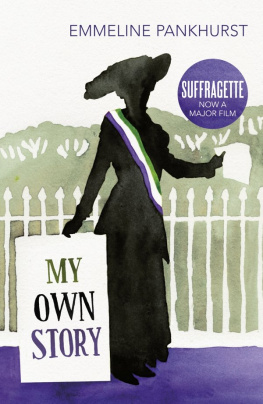Rossner - Emmeline
Here you can read online Rossner - Emmeline full text of the book (entire story) in english for free. Download pdf and epub, get meaning, cover and reviews about this ebook. year: 2014, publisher: Simon & Schuster, genre: Science fiction. Description of the work, (preface) as well as reviews are available. Best literature library LitArk.com created for fans of good reading and offers a wide selection of genres:
Romance novel
Science fiction
Adventure
Detective
Science
History
Home and family
Prose
Art
Politics
Computer
Non-fiction
Religion
Business
Children
Humor
Choose a favorite category and find really read worthwhile books. Enjoy immersion in the world of imagination, feel the emotions of the characters or learn something new for yourself, make an fascinating discovery.

- Book:Emmeline
- Author:
- Publisher:Simon & Schuster
- Genre:
- Year:2014
- Rating:4 / 5
- Favourites:Add to favourites
- Your mark:
- 80
- 1
- 2
- 3
- 4
- 5
Emmeline: summary, description and annotation
We offer to read an annotation, description, summary or preface (depends on what the author of the book "Emmeline" wrote himself). If you haven't found the necessary information about the book — write in the comments, we will try to find it.
Emmeline — read online for free the complete book (whole text) full work
Below is the text of the book, divided by pages. System saving the place of the last page read, allows you to conveniently read the book "Emmeline" online for free, without having to search again every time where you left off. Put a bookmark, and you can go to the page where you finished reading at any time.
Font size:
Interval:
Bookmark:

Thank you for downloading this Simon & Schuster eBook.
Join our mailing list and get updates on new releases, deals, bonus content and other great books from Simon & Schuster.
C LICK H ERE T O S IGN U P
or visit us online to sign up at
eBookNews.SimonandSchuster.com

FOR MORDECAI PERSKY
Nettie Mitchell told me about Emmeline. Nettie is ninety-four years old and still lives in Fayette. She knew Emmeline when she herself was a child and Emmeline was an old woman.
T HIS is the story of Emmeline Mosher, who, before her fourteenth birthday, was sent from her home on a farm in Maine to support her family by working in a cotton mill in Massachusetts. The year was 1839.
Fayette, where Emmeline lived, was then known for its fine dairy cattle, but Emmelines parents had a small farm on a rocky hillside, and even in good times they had not prospered. This was a period in which business conditions were poor throughout Maine, and for three years Emmelines father had been unable to find work to supplement the small yield from the farm. Then, the past season, a killing frost had come in June to destroy all their tender seedlings. Now it was only the third week of November, but from the look of their larder they might have been well into winter.
There were nine children, and they were hungry all the time. The three-year-old cried to nurse at his mothers breast when the one-and-a-half-year-old was in her arms, but Emmelines mother didnt get enough food to provide milk for two children. In fact, since the death of her last baby, within hours of its birth, she seemed to have difficulty providing enough for one. Emmeline, the oldest child, would watch and think what a help it would be if only she could nurse them. At most tasks she and her mother worked together like equals. Sarah Mosher was thirty-one years old; Emmeline was thirteen.
For some time now there had been a feeling among the older children and their parents that something would have to happen; there must be some change from the outside that would make it possible for them to go on. Sarah Mosher, always intensely devout, trusted that God in His own way and time would help them, but Henry Mosher had stopped going to church in recent weeks, saying that if God had no time to bother about him, then he had no time for God. When help finally came, it was difficult, at first, to find in it any sign of Gods work.
Emmelines aunt and uncle, Hannah and Abner Watkins, came to visit from their home in Lynn, Massachusetts, for the first time in many years. It was a painful visit for everyone. Not only were the Watkinses shocked at how little food there was, and at how badly matters were going in general, but Hannah, in particular, had a very critical air, her manner suggesting that if Henry Moshers moral fiber had been stronger, there would not have been poor business conditions or late frosts in Maine. Emmelines mother, still not recovered from five babies in four years, and the last born only to die within hours, seemed ashamed under her sister-in-laws scrutiny. And this, in turn, was an agony to Emmeline, who loved her mother perhaps even beyond a daughters usual love, and never questioned her perfection.
Meals were the worst time, for they were trapped together around the long table that dominated the common room, staring at each other or at their plates, which always looked as though others had been there first and eaten their fill. Hannah talked constantly, her voice like the repeated banging of an unlatched door in a storm; just when you thought the storm had subsided, the banging began again.
When she was not expounding on the glories of Lynn, Massachusetts, of her home and her husband, Hannah talked a great deal about the city of Lowell, with its huge cotton mills and its benevolent system under which the millowners provided for the board and protection of their employees. It was because of this system that the mills had been able to attract such good helpfine, respectable girls, not unlike Emmelinefrom the poverty-stricken farms of Maine and New Hampshire. It was in Lowell that Abner had earned the money to set up the shoemaking establishment he now operated in Lynn.
Theres girls in Lowell, Hannah said, whove sent their brothers through school, or lifted the mortgage on their folks farmby theirselves. And they have a good time all the whilst theyre doing it. Lowells nothing like what you imagine.
Nobody had imagined anything about Lowell before Hannah began talking about it.
Theres hundreds of girls just like Emmeline, Hannah said. Younger, some of em. Earning enough past room and board to send home two dollars a week.
A hush fell over the table, then. The children couldnt imagine that amount of money, and their parents hadnt seen it at one time in some years. For the first time Emmeline felt anxious in a way that seemed to be about herself, although she didnt yet know why.
How does that sound, Emmeline? Hannah asked.
Why had she been singled out?
Now, Hannah, her father said in a low, troubled voice.
Never mind, Henry, Hannah said. You could lift your mortgage in a few years. And meanwhile youd have food. Not that shed have to stay so long, if she didnt come to like it.
It was then Emmeline understood for the first time that Hannah was trying to persuade her parents to send her to work in Lowell. She looked at her plate, waiting for her father to tell Hannah that it was out of the question, wishing for the hundredth time that the Watkinses had never come, expecting that her mother would remind Hannah of her tender age. (It was the first time she had ever felt young for her years.) She looked to her mother for reassurance,- her mother started, then flushed.
They were thinking of doing it, then. Of sending her away from home. All life seemed to drain from her body, and she was filled with a feeling of dread so strong as to make it difficult to breathe, impossible to move or to speak.
Just think how proud youll be, Emmeline, Hannah said.
Emmeline looked at her father, who was toying with his food instead of eating it. On her mothers lap, William reached for the small piece of corn bread left on the plate the two shared. The other young ones were beginning to leave the table, but Andrew and Harriet, at eleven and ten old enough to have some idea of what was happening, waited to see if it was important. To Emmelines right, at the head of the table, sat Luke and her father. Luke was pretending to look at his plate, but he was really watching her, his sorrowful gray eyes hidden under lowered lids. Luke was the closest to Emmeline in age, being just eleven months younger than she, and the closest in love and confidence as well.
Tears came to her own eyes for the first time, and she lowered her head so no one would see. Her throat ached with the effort to keep from crying.
Hannah was speaking of how much more interesting it was to work in a mill than to labor endlessly on a farm, though her father had told Emmeline that during her spinster years, Hannah had been just as certain that a farm in Fayette was the only decent place to live. It was when she was already thirty-four years old, and well past the second mark, that Hannah had gone to a church social in Liver-more Falls and met Abner Watkins. Abner was only twenty-eight, but he had been away from Livermore for twelve years, having left his home at the age of sixteen and gone to Lynn, where he apprenticed himself to a master shoemaker. He had stayed with this man for twelve years, but upon being refused the hand of the youngest daughter of the family had returned home, heartbroken. One week after hed met Hannah, they were married and on their way to a new life, not in Lynn, but in Lowell. It was 1832, and the great mills were in their heyday. Within days of their arrival, Abner had secured a position in a mill shop where leather parts and pieces were repaired, and two years later he was overseer of that shop. In another three years, he had saved enough to open his own shop in Lynn. Now his wife championed Lynn and Lowell and pitied those who were left in Fayette.
Font size:
Interval:
Bookmark:
Similar books «Emmeline»
Look at similar books to Emmeline. We have selected literature similar in name and meaning in the hope of providing readers with more options to find new, interesting, not yet read works.
Discussion, reviews of the book Emmeline and just readers' own opinions. Leave your comments, write what you think about the work, its meaning or the main characters. Specify what exactly you liked and what you didn't like, and why you think so.


